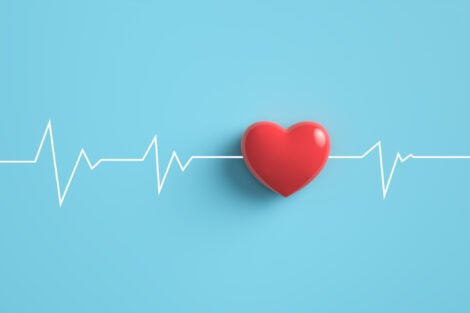May 14, 2024—If most people in the U.S. took aspirin within hours of experiencing severe chest pain, it could delay more than 13,000 heart attack deaths every year, according to a new study led by researchers at Harvard T.H. Chan School of Public Health.
The study was published May 1 in the Journal of the American Heart Association. Goodarz Danaei, Bernard Lown Professor of Cardiovascular Health, was the corresponding author. Other authors included Rienna Russo, doctoral candidate in the Department of Epidemiology, and Daniel Wikler, Mary B. Saltonstall Professor of Ethics and Population Health.
Aspirin is known to be an effective, low-cost method to reduce the risk of death from heart attack. The greatest benefits are seen when taken promptly (≤ 4 hours) after symptoms begin. But many people who experience chest pain, the most prominent indicator of a heart attack, may not be aware of this, according to the researchers. Most also don’t seek out health care until many hours after the onset of symptoms.
The researchers set out to quantify what the health benefits would be if aspirin use in the wake of chest pain became widespread. To do so, they used U.S. Census data, counts of heart attack deaths, and data from previous studies on chest pain incidence and on aspirin use after chest pain. They then developed a population simulation model to determine the impact of self-administering aspirin.
The study found that if adults across the U.S. took aspirin within four hours of beginning to experience severe chest pain, 13,016 deaths would be averted each year, even after accounting for deaths from aspirin-related bleeding. The researchers calculated that these averted deaths amounted to 166,309 years of life saved, and that the necessary supply of aspirin to achieve this goal would cost $643,235. This translated to an average cost-effectiveness ratio of $3.70 per year of life saved.
“Efforts should continue to improve access and adherence to secondary prevention strategies, like initiating statins and improving dietary quality, but self-administration of aspirin alone can drastically reduce heart attack mortality without imposing financial strains or requiring long-term behavioral change,” the researchers said.
Image: iStock/cagkansayin
